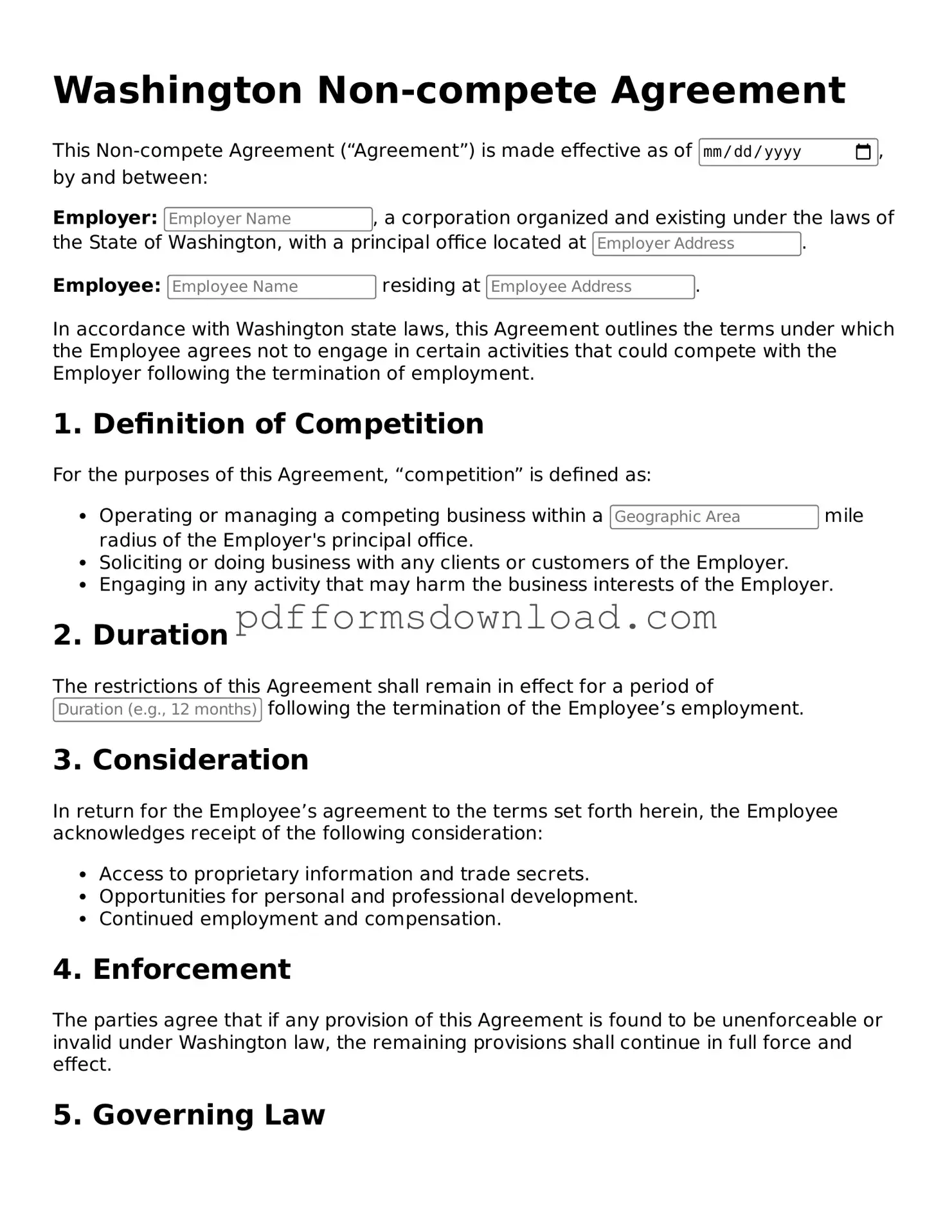What is a Non-compete Agreement in Washington State?
A Non-compete Agreement is a legal contract between an employer and an employee. It restricts the employee from working for competitors or starting a competing business for a certain period after leaving the employer. In Washington State, these agreements must meet specific criteria to be enforceable.
Are Non-compete Agreements enforceable in Washington?
Yes, Non-compete Agreements can be enforceable in Washington, but only if they comply with state laws. The agreement must be reasonable in scope, duration, and geographic area. If it is deemed overly restrictive, a court may invalidate it.
What are the limitations on Non-compete Agreements in Washington?
In Washington, a Non-compete Agreement cannot last longer than 18 months after the employment ends. Additionally, it must be necessary to protect legitimate business interests, such as trade secrets or customer relationships. Agreements that are too broad or vague may not hold up in court.
Do I need to sign a Non-compete Agreement before starting a job?
Employers may require new employees to sign a Non-compete Agreement as part of the hiring process. It’s important to read the document carefully and understand its implications before signing. If you have concerns, consider discussing them with a legal professional.
Can I negotiate the terms of a Non-compete Agreement?
Yes, you can negotiate the terms of a Non-compete Agreement. If you feel that certain aspects are too restrictive or unfair, it’s advisable to discuss your concerns with your employer. Negotiating terms can lead to a more balanced agreement that protects both parties.
What happens if I violate a Non-compete Agreement?
If you violate a Non-compete Agreement, your former employer may take legal action against you. This could include seeking an injunction to prevent you from working for a competitor or pursuing damages for any losses incurred due to the violation. Understanding the risks is crucial before making any decisions.
Can I work for a competitor if my Non-compete Agreement has expired?
Once the duration specified in your Non-compete Agreement has expired, you are generally free to work for a competitor or start your own business. However, it’s wise to review the agreement to confirm that all conditions have been met and that there are no other restrictions in place.
What should I do if I believe my Non-compete Agreement is unfair?
If you believe your Non-compete Agreement is unfair or overly restrictive, seek legal advice. A qualified attorney can help you understand your rights and options. They can also assist in negotiating terms or challenging the agreement if necessary.
Is there any way to get out of a Non-compete Agreement?
In some cases, it may be possible to get out of a Non-compete Agreement. This could involve negotiating with your employer or proving that the agreement is unreasonable or unenforceable. Consulting with a legal professional can provide clarity on your situation and potential strategies.

